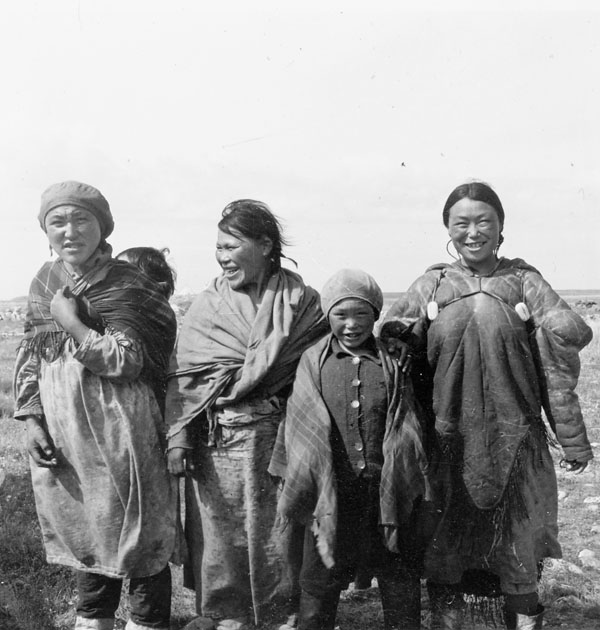Library and Archives Canada’s Indigenous Documentary Heritage Initiatives
 Summary: In 2017, the Government of Canada announced funding for Library and Archives Canada (LAC) to support the digitization of Indigenous documentary heritage. This has included both work to increase online access to the relevant holdings of Library and Archives Canada, and support and expertise to Indigenous communities in their efforts to preserve and revitalize their own Indigenous-language recordings languages, without transferring ownership or control.
Summary: In 2017, the Government of Canada announced funding for Library and Archives Canada (LAC) to support the digitization of Indigenous documentary heritage. This has included both work to increase online access to the relevant holdings of Library and Archives Canada, and support and expertise to Indigenous communities in their efforts to preserve and revitalize their own Indigenous-language recordings languages, without transferring ownership or control.
Type of Project: Some of the documents are held in Library and Archvies Canada stores, but many others are in repositories across the country.
Countries Involved: 1
Detail
[Website] | [Description] | [Partners] | [Duration] | [Access to Data and Documents] | [Volumetry]
Website
Description
In Budget 2017, the Government of Canada announced funding for Library and Archives Canada (LAC) to support the digitization of existing Indigenous documentary heritage and to support Indigenous communities for the digitization of Indigenous-language recordings.
The first initiative is a documentary heritage digitization project that will focus on increasing online access to LAC’s holdings that contain First Nations, Inuit, and Métis Nation related content, including government records, private archival records, and published works.
The goal of the initiative is to provide free online access to unrestricted digital material through LAC’s website and social media. Therefore, important components of the project are the simultaneous improvement of existing means of access and the creation of new tools, including:
- digital finding aids
- online research guides and databases
- web-based engagement and learning modules
- an online crowdsourcing application on the portal to transcribe, tag, translate, describe, and correct inaccuracies in the archival description.
The second initiative is a digitization project that aims to offer support and expertise to Indigenous communities in their efforts to preserve and revitalize their own Indigenous-language recordings languages.
Through collaborative approaches and without any transfer of ownership or control, LAC will offer a variety of services to communities to preserve and provide access to Indigenous oral recordings. These services include:
- digitization services
- deposit preservation services
- development of a catalogue of existing oral expressions
- tools and training for the digital preservation of existing recordings
- an independent web portal to facilitate access to these materials
- an online crowdsourcing application on the portal to transcribe, tag, translate, describe, and correct inaccuracies in archival descriptions.
Partners
- Library and Archives Canada, Canada
- Others to be determined
Duration
- Ongoing (started 2017)
Access to Data and Documents
The availability of materials will depend on existing institutional practices and professional expertise.
Metadata is available for consultation on an online catalogue.
Volumetry
600 000 pages, and 700 hours of oral recordings (planned)